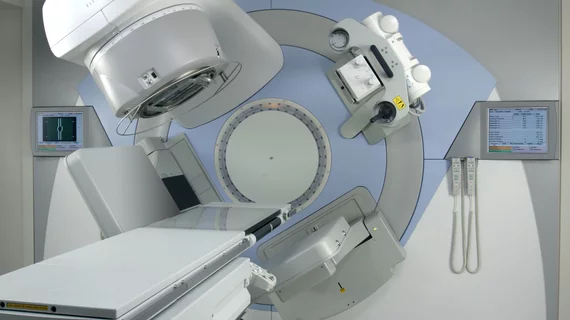Radiation Oncology
Radiation therapy uses high-energy radiation to damage cancer cells' DNA and destroy their ability to divide and grow. It is delivered using linear accelerators, proton accelerators, metered cobalt-60 exposure, or brachytherapy where radioactive seeds are placed inside the patient on a temporary or permanent basis to kill cancer or relieve pain. The main radiation oncology society and annual conference is the American Society of Radiation Oncology (ASTRO).
Displaying 73 - 80 of 110













